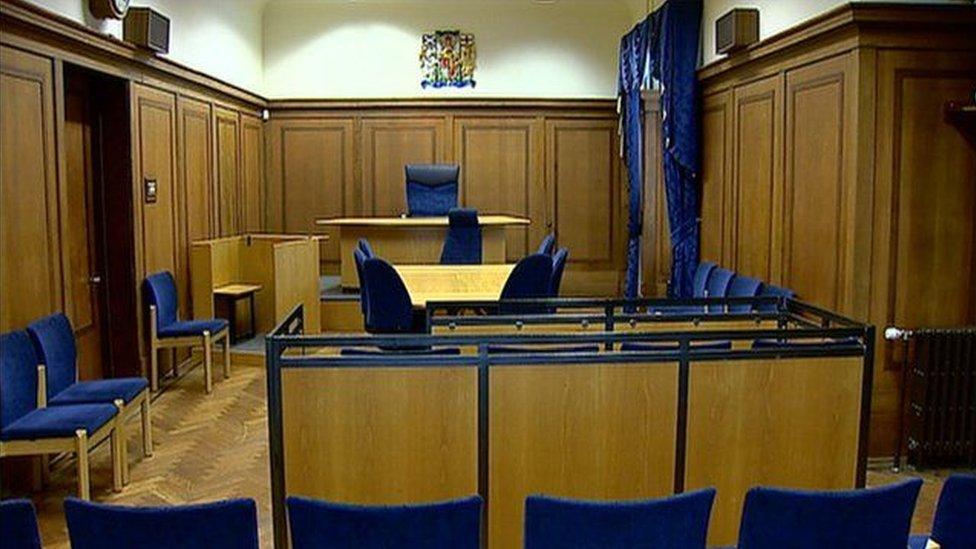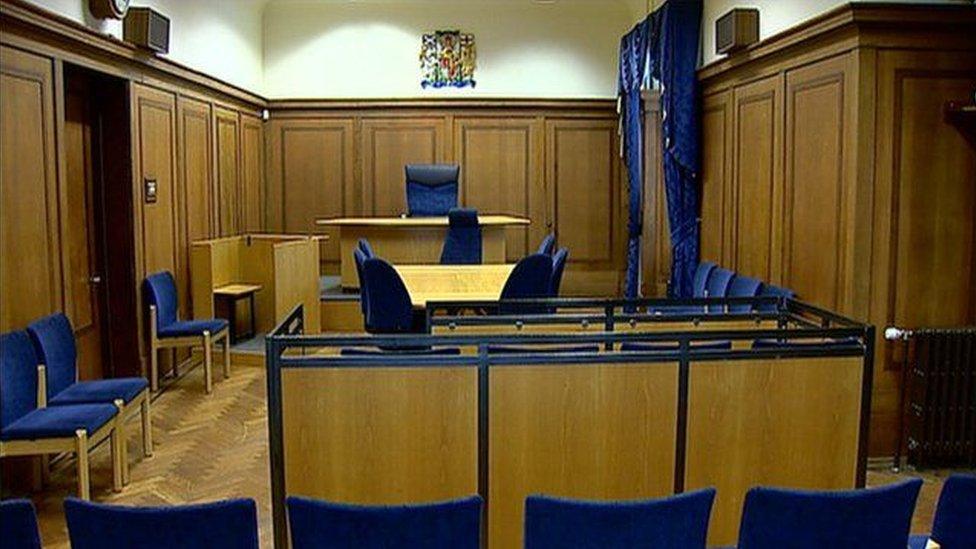Study to examine use of 'not proven' verdict
- Published

A "groundbreaking" study into how juries come to decisions - including their use of the not proven verdict - is to be carried out in Scotland.
The research has been described as the first of its kind in Scotland and will take place over the next two years.
The study will involve members of the public sitting on "mock juries" and will examine the size of juries and their decision-making processes.
It will also consider Scots law's unusual three-verdict system.
In Scotland, unlike many of the world's legal systems, jurors have three possible verdicts to choose from in criminal cases - guilty, not guilty and not proven.
Case simulations
Justice Secretary Michael Matheson announced that the team will be headed by market research company Ipsos Mori, working with Prof James Chalmers and Prof Fiona Leverick, of the University of Glasgow, and Prof Vanessa Munro, of Warwick University.
Mr Matheson said: "This important research is a direct result of Lord Bonomy's post-corroboration safeguards review in which he recommended that research should be carried out to ensure that any changes to our jury system are made only on a fully-informed basis, including the impact having a three-verdict system has on decision making.
"The Ipsos Mori team will work in collaboration with three respected academics and will use case simulations rather than real jurors. Their findings will help inform any future decisions that may be taken in relation to potential reforms of our criminal justice system."

What is the not proven verdict?
Scotland, unlike most of the world's legal systems, has three possible verdicts in criminal cases - guilty, not guilty and not proven
The legal implications of a not proven verdict are the same as with a not guilty verdict: the accused is acquitted and is innocent in the eyes of the law
Not proven is seen by some as offering additional protection to the accused
But critics argue that it is confusing for juries and the public, can stigmatise an accused person and fail to provide closure for victims
Scottish juries were historically able to return only proven or not proven verdicts
A third verdict of not guilty was introduced in the 1700s and became more commonly used than not proven
However, the option of returning a verdict of not proven was never removed
In more recent years, the general perception has been that a "not proven" verdict suggests a sheriff or jury believes the accused is guilty, but does not have sufficient evidence to convict

Lorraine Murray, deputy managing director of Ipsos Mori Scotland, said: "We are delighted to be undertaking this important and groundbreaking research - the first of its kind in Scotland.
"With the help of several hundreds of members of the public who will sit on "mock juries", we will be able to provide unique insights into how Scottish juries reach their decisions."
Prof Chalmers said: "This study will help us understand just what difference the special features of the Scottish jury system make in practice."
Last year, Holyrood's justice committee concluded that Scotland's not proven verdict was on "borrowed time" and may not serve any useful purpose.
In last year's programme for government, external, the Scottish government said it wanted to commission "independent jury research to consider the dynamics of decision-making by juries, including the current jury majority and three-verdict system, helping to inform future proposals for the reform of the criminal justice system".
Responding to the plans, Douglas Thomson, of the Law Society's Criminal Law Committee, told BBC Scotland the not proven verdict was the "logical" one to keep in criminal cases and there was an argument for dropping not guilty.
He said that if the Crown failed to prove a case, the logical verdict was not proven, rather than not guilty.
- Published13 September 2016

- Published25 February 2016

- Published9 February 2016

- Published19 January 2016
